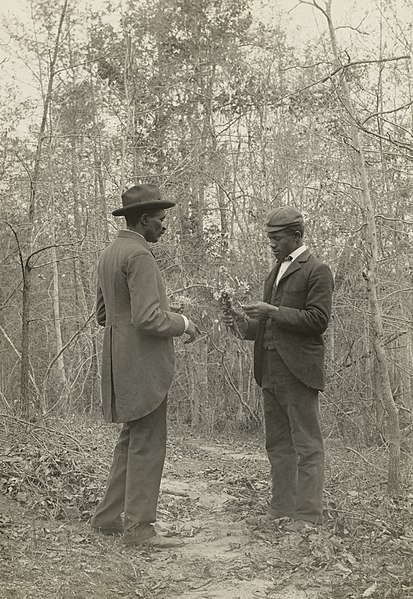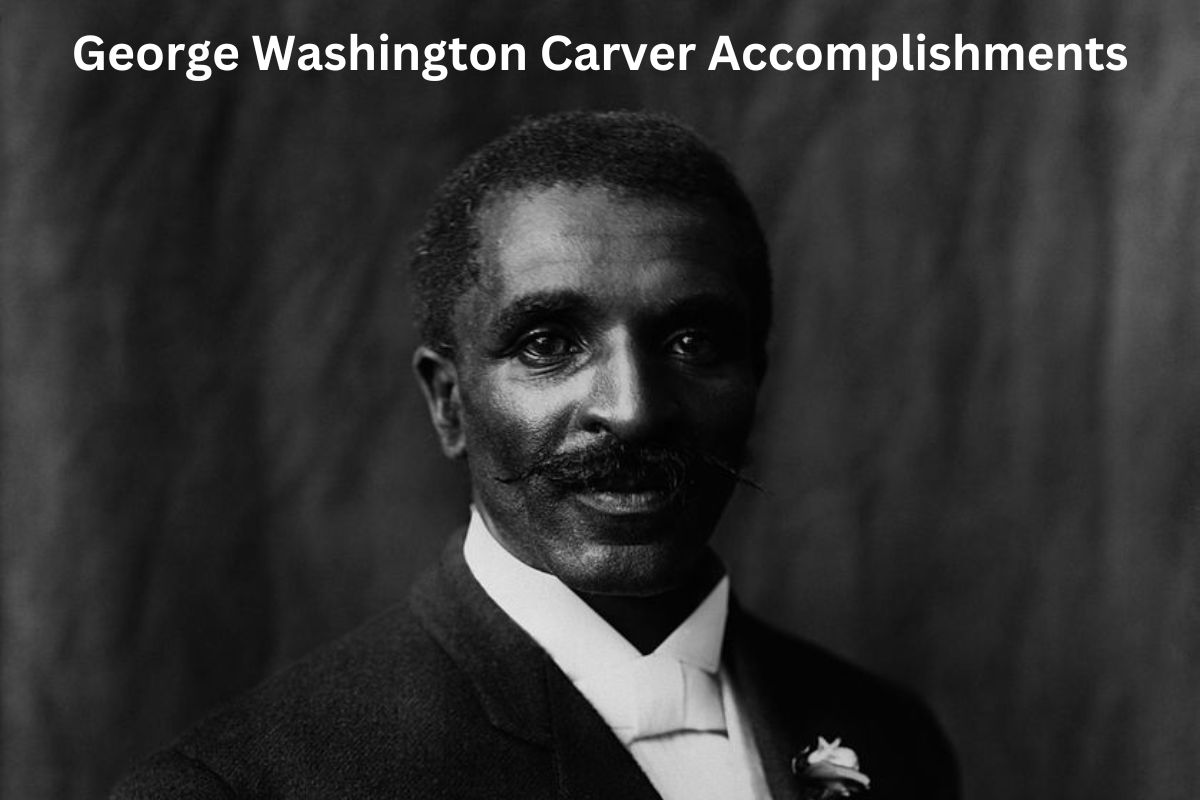George Washington Carver was a renowned African American scientist and agricultural pioneer who lived from 1860 to 1943. His accomplishments and contributions spanned a wide range of areas, making him an influential figure in American history.
Carver’s groundbreaking research on peanuts, along with his advocacy for sustainable farming practices and nutritional education, revolutionized the agricultural industry.
He developed innovative uses for peanuts, invented hundreds of peanut-based products, and promoted alternative crops like sweet potatoes and soybeans.
Carver’s work not only improved agricultural practices but also broke racial barriers, inspiring future generations of scientists and farmers. His dedication to education and mentorship further cemented his legacy as a champion of knowledge and empowerment.
Accomplishments of George Washington Carver
1. Pioneered research on peanuts
George Washington Carver conducted groundbreaking research on peanuts, which revolutionized the agricultural industry.
Also Read: George Washington Carver Timeline
His studies focused on the versatility and potential of this crop, exploring its nutritional value, cultivation techniques, and various uses.
Carver’s pioneering work paved the way for the widespread adoption of peanuts as a valuable agricultural commodity.

2. Developed various uses for peanuts, including peanut butter and peanut oil
One of Carver’s most significant contributions was the development of numerous uses for peanuts. He discovered innovative ways to process peanuts and created products like peanut butter, peanut oil, and peanut-based cosmetics.
Also Read: George Washington Carver Facts
These inventions not only provided consumers with new and delicious food options but also created additional economic opportunities for farmers.
3. Advocated for crop rotation and soil conservation
Carver recognized the importance of sustainable agricultural practices to maintain soil fertility and prevent soil depletion.
He promoted the use of crop rotation, which involves alternating the cultivation of different crops in a specific area over time. This technique helps replenish soil nutrients and reduce the risk of pests and diseases.
Additionally, Carver advocated for soil conservation measures, such as using legumes like peanuts, which fix nitrogen in the soil, improving its quality and reducing the need for synthetic fertilizers. His advocacy for these practices played a crucial role in preserving soil health and enhancing long-term agricultural productivity.
4. Committed to education and mentorship
Carver was dedicated to education and mentorship throughout his career. He taught at the Tuskegee Institute (now Tuskegee University) and played a pivotal role in shaping the minds of numerous students.
Carver believed in the power of education to uplift individuals and communities. He mentored aspiring scientists and farmers, instilling in them a passion for learning and the pursuit of knowledge.
Carver’s commitment to education and mentorship had a lasting impact on the lives of many, leaving a legacy of empowered individuals who went on to make significant contributions in their respective fields.
5. Promoted alternative crops like sweet potatoes and soybeans
George Washington Carver recognized the importance of diversifying agricultural practices and reducing reliance on a single crop. He researched and promoted alternative crops like sweet potatoes and soybeans, highlighting their nutritional and economic value.
Carver demonstrated the versatility of these crops by developing new uses and products, which expanded market opportunities for farmers and helped them mitigate the risks associated with monoculture farming.
6. Invented over 300 products made from peanuts
Carver’s innovative mindset and scientific knowledge led him to invent an impressive array of products made from peanuts. He experimented extensively with peanut derivatives, discovering new applications in areas such as food, personal care, and industrial uses.
Some of his inventions included peanut-based ink, shampoo, soap, paper, glue, and dyes. Carver’s inventions not only diversified the use of peanuts but also showcased their economic potential, providing farmers with a wide range of products to generate income.
7. Improved nutrition through the promotion of nutritious foods
George Washington Carver was deeply committed to addressing issues of nutrition and food security. He actively promoted the consumption of nutritious foods, particularly those that were affordable and locally available.
Carver’s emphasis on crops like peanuts and sweet potatoes, which are rich in vitamins, minerals, and dietary fiber, helped improve the nutritional quality of diets in both rural and urban communities.
His efforts played a significant role in combating malnutrition and promoting healthier eating habits among various populations.
8. Popularized scientific agriculture
George Washington Carver was a strong advocate for scientific agriculture. He emphasized the value of research, experimentation, and evidence-based practices in the field of agriculture.
Carver’s work played a crucial role in popularizing the concept of applying scientific principles to farming, encouraging farmers to embrace innovative techniques, and improving overall agricultural productivity.
By promoting scientific agriculture, he helped revolutionize farming practices and set the stage for future advancements in the field.
9. Emphasized environmental conservation
Carver was deeply concerned about the long-term sustainability of agricultural practices and the preservation of natural resources. He believed in the importance of environmental conservation and advocated for sustainable farming methods.
Carver encouraged farmers to adopt practices such as crop rotation, soil conservation, and organic farming to minimize environmental impact and maintain ecological balance. His teachings emphasized the need to protect and preserve the environment for future generations.
10. Broke barriers and advanced African American representation in science
George Washington Carver’s achievements as an African American scientist during a time of racial discrimination and segregation were groundbreaking. He broke barriers and defied societal expectations, becoming an inspiration to many.
Carver’s accomplishments in the field of science challenged stereotypes and promoted the idea that African Americans could excel in scientific fields. He became a prominent figure in African American history and a symbol of perseverance and intellectual achievement.
